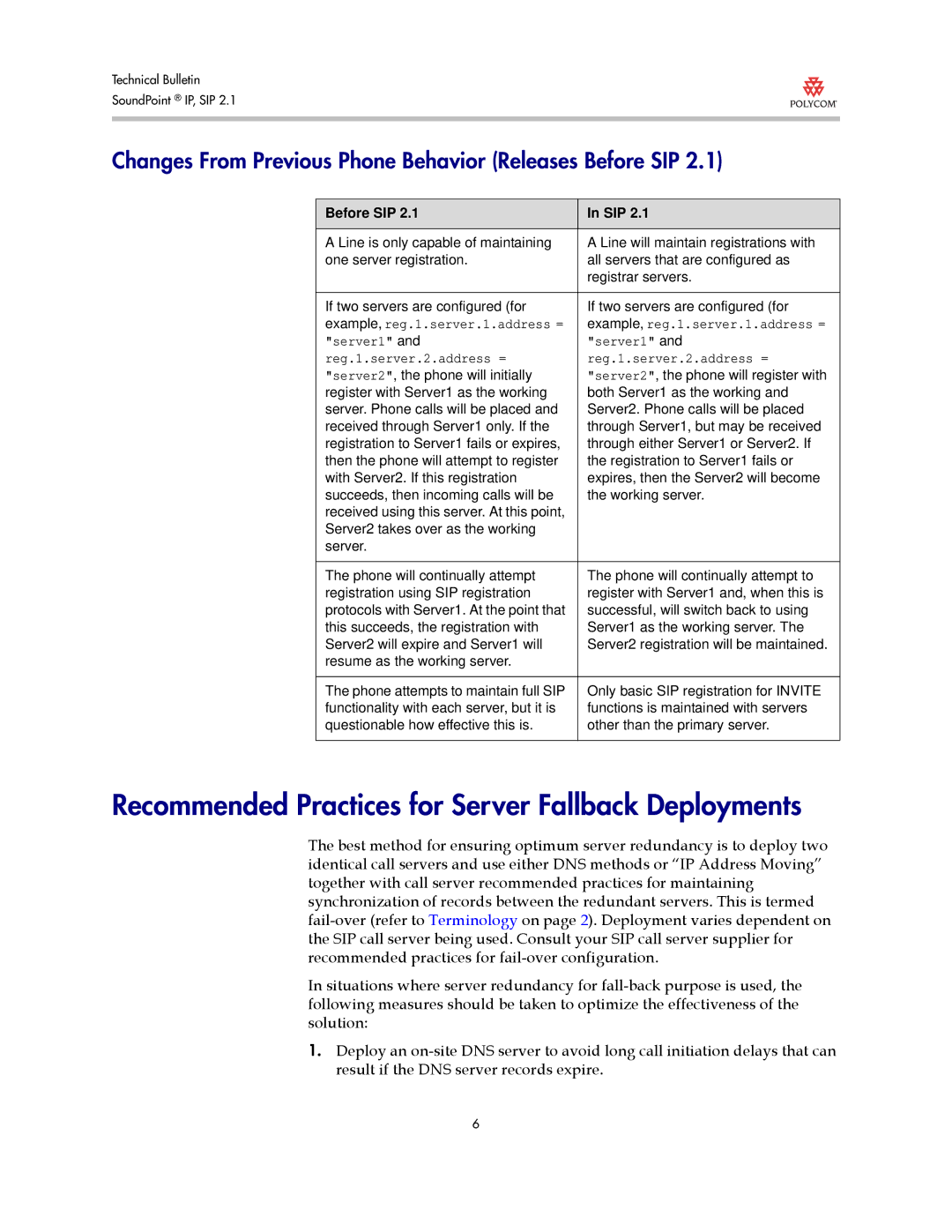Technical Bulletin
SoundPoint ® IP, SIP 2.1
Changes From Previous Phone Behavior (Releases Before SIP 2.1)
Before SIP 2.1 | In SIP 2.1 |
|
|
A Line is only capable of maintaining | A Line will maintain registrations with |
one server registration. | all servers that are configured as |
| registrar servers. |
|
|
If two servers are configured (for | If two servers are configured (for |
example, reg.1.server.1.address = | example, reg.1.server.1.address = |
"server1" and | "server1" and |
reg.1.server.2.address = | reg.1.server.2.address = |
"server2", the phone will initially | "server2", the phone will register with |
register with Server1 as the working | both Server1 as the working and |
server. Phone calls will be placed and | Server2. Phone calls will be placed |
received through Server1 only. If the | through Server1, but may be received |
registration to Server1 fails or expires, | through either Server1 or Server2. If |
then the phone will attempt to register | the registration to Server1 fails or |
with Server2. If this registration | expires, then the Server2 will become |
succeeds, then incoming calls will be | the working server. |
received using this server. At this point, |
|
Server2 takes over as the working |
|
server. |
|
|
|
The phone will continually attempt | The phone will continually attempt to |
registration using SIP registration | register with Server1 and, when this is |
protocols with Server1. At the point that | successful, will switch back to using |
this succeeds, the registration with | Server1 as the working server. The |
Server2 will expire and Server1 will | Server2 registration will be maintained. |
resume as the working server. |
|
|
|
The phone attempts to maintain full SIP | Only basic SIP registration for INVITE |
functionality with each server, but it is | functions is maintained with servers |
questionable how effective this is. | other than the primary server. |
|
|
Recommended Practices for Server Fallback Deployments
The best method for ensuring optimum server redundancy is to deploy two identical call servers and use either DNS methods or “IP Address Moving” together with call server recommended practices for maintaining synchronization of records between the redundant servers. This is termed
In situations where server redundancy for
1.Deploy an
6
